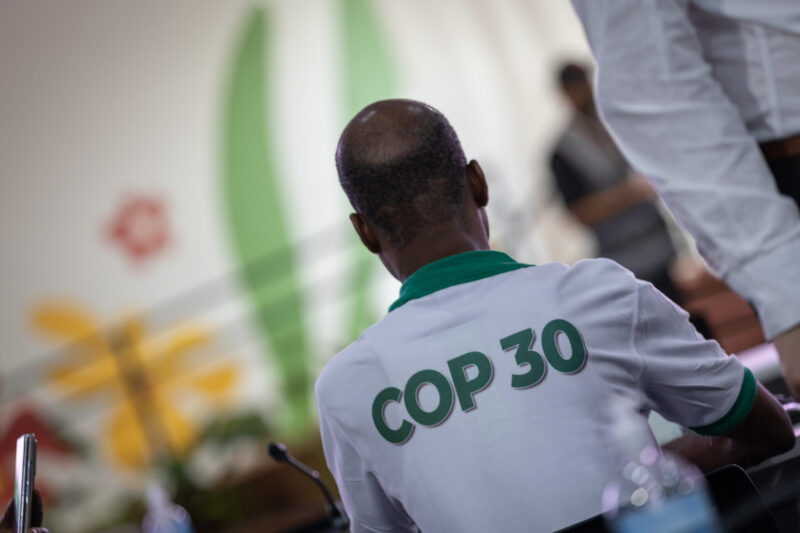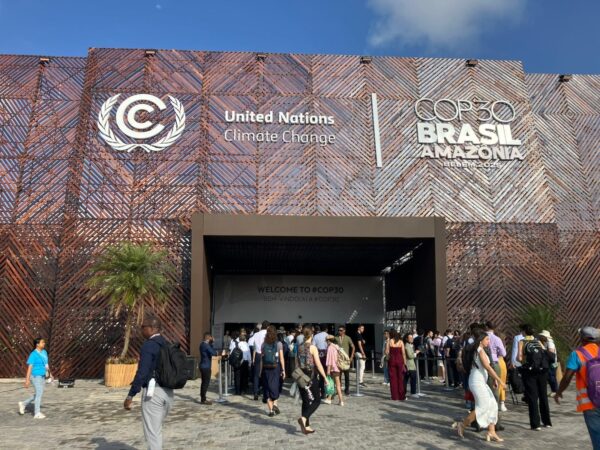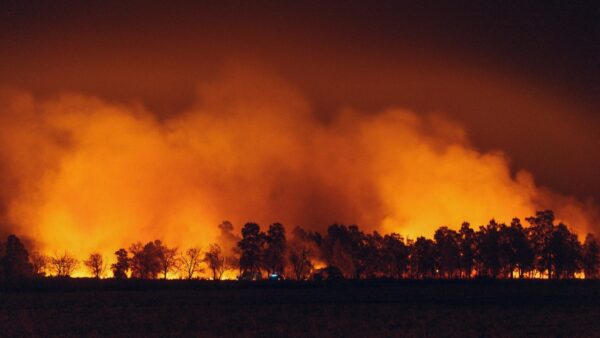Bill Hare, CEO of Climate Analytics, comments at the end of COP30
After COP30, it is now up to national leaders to close the gap between promises and reality.
Share

“COP30 in Belém didn’t deliver the bold fossil fuel phaseout roadmap that is needed, but it has nudged the system forward: more scrutiny of fossil fuel producers and more money for forests and adaptation, and a new, rising emphasis on trade and implementation.
“The traditional COP model is under serious strain in a fractured, multipolar world, particularly from countries prepared to sacrifice the well-being of the world for fossil fuel interests.
“It is significant that the Brazilian presidency will move forward process on developing a roadmap for a transition away from fossil fuels, and that more than 90 countries support this.
“There is agreement on process to accelerate implementation, which is weaker than it should be, because of the opposition of countries who don’t want to move forward.
“Limited progress was made on adaptation with an indicator framework that lacks the support of most countries and with a vague tripling goal to be achieved in ten years, at a time when the gap in adaptation finance is exceedingly high, and scaled up adaptation action is sorely needed with hard limits to adaptation on the horizon.
“Our work has shown that implementation of the already-agreed goals to triple renewables, double efficiency, and reduce methane emissions, would be a game changer and take the world within 0.2-0.3°C of limiting warming to 1.5° or below.
“Two years ago at COP28, all governments agreed to do just this—triple renewable energy, double energy efficiency and act on methane by 2030. Our Climate Action Tracker recently published a report showing that if governments actually implemented these three actions by 2030 and beyond (rather than just talking about it), the rate of global warming could be cut by a third within 10 years and half by 2040. In that world, warming could be kept below 2°C this century, rather than the 2.6°C we will get from current policies.
“At COP30, the scientific community warned governments loudly and clearly that without rapid action, we are headed for a substantial overshoot of the Paris Agreement’s 1.5°C limit.
“The talk of the COP has been to ‘embrace science’ and move away from negotiations to focus on implementation. However, there is a massive risk that the outcome of COP30 will just leave countries to ‘implement’ policies that will warm the Earth to 2.6°C. There is no point in ‘embracing the science’ if it’s not acted on, just as there is no point agreeing to global energy goals if they’re not implemented.
“The Paris Agreement calls on countries to pursue efforts to limit warming to 1.5°C and to act with their ‘highest possible ambition.’ Analysis from Climate Analytics shows there is still a ‘highest possible ambition’ pathway that leads to returning to well below 1.5°C this century. But this can only happen if governments rapidly pivot from weak, incremental steps to bold implementation of renewables, efficiency, and methane cuts, backed by scaled-up finance for vulnerable and poorer countries. After COP30, the credibility of that commitment is on the line, and it is now up to national leaders to close the gap between promises and reality.”
— Bill Hare, CEO and Senior Scientist, Climate Analytics











